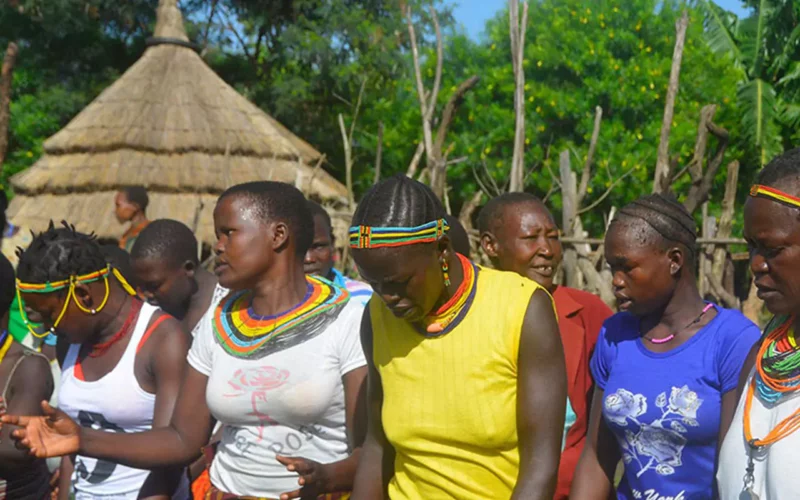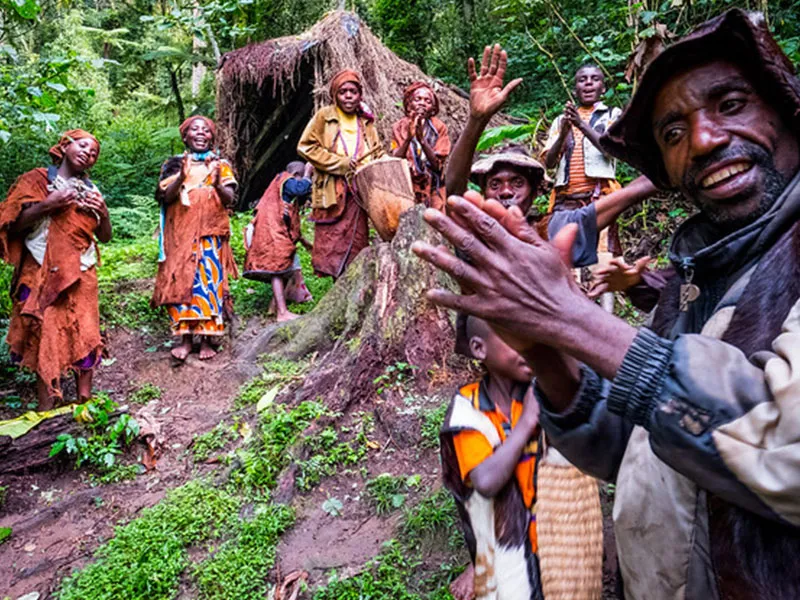A Uganda cultural tour is an authentic and immersive experience into a diversity of ancient traditions and norms that shape the identity of Uganda people. Our tours are led by informative local guides, offering you first-hand access to interact and mingle with ordinary folks, share smiles and appreciate life and its blessings at all levels. A cultural tour is an eye-opening moment to many travellers to learn of diverse ancient traditions and values passed on from generations to generations and see how they shaped their societies.
Uganda Culture
The modern Uganda is a recent creation comprising of over 56-tribes from the 3 main African groups of people. The Bantu are the majority occupying most of the western, southern and extending into the eastern regions of the country. The Nilotic tribes occupy the north and the north-west while the Nilo-Hamites occupy the north-east. Settled in chiefdoms and kingdoms, these tribes speak over 30 languages in between with Swahili connecting them to East African neighbors and English being the national language. Today, we have Europeans, Asians, Somalis, Arabs, Congolese and more that have settled within Uganda bringing along various traditions and cultures that have been adopted into the main Ugandan society.
Where to go on a Uganda cultural Tour
A Ugandan Cultural tour is often tailored along with Uganda’s premier adventures including gorilla and chimpanzee treks experiences, hiking, birdwatching and wildlife safaris as these attractions are surrounded by diverse communities who are the true custodians of these natural attractions. The tour is an opportunity to see how these communities relate to these natural attractions, how there are benefiting and preserving the biodiversity in them. Various activities lined up while on Uganda cultural tour include; agricultural farm visits, local food experience, traditional dances, banana wine making, coffee and vanilla experience among others.

-
Visit the Karamajong
Spread across the north-east of Uganda, the semi-nomadic Karamojong are a collection of related Nilotic tribes that migrated from the central plains of Ethiopia and eastern now South Sudan heading south for pasture and water for their millions of heads of cattle and goats in late 15th century. Today these tribes are settled and spread as far as western and north western Kenya, northern slopes of Mt. Elgon, Teso flood plains and around L. Kyoga in Uganda. The warrior semi-nomads now settled within the Karamoja region are re-known cattle keepers and traditionally engage in fierce cattle-raids and grazing land battles with their northern and eastern cousin neighbors which for decades kept this region a no-go area for any outsider.
This fierce resistance comes from their ancient nomadic warrior lifestyle that’s kept them alive and successful taming this rather unforgiving and hostile landscape. From the mid-nineties, the government has worked with elders to disarm and encourage them to adapt and embrace modern practices, bringing peace in the entire region. Today, Karamoja is open and a tourist fast-growing region.
Travelers are stunned at its remote wilderness setting, stunning scenery, well preserved yet flourishing ancient culture and traditions and hospitality!
A community guided cultural experiences here explore typical Karamajong homesteads locally known as “manyattas”, their cattle markets giving one authentic first-hand understanding into their love-lifestyle with the cattle, ancient warrior traditions, dine, drink and share dance to their warrior folksongs. Highlight experiences include community visit, guided nature walks, birding targeting the unique specie-list that occur only in this region and cycling to appreciate the inspiring scenery of this region.

-
Visit the Batwa
The Batwa are the earliest original settlers in the forests within the great lakes region and the lowland forests of central Africa. Collectively called the pygmies, the Batwa live in Rwanda, Burundi and Uganda and once inhabited tropical forests on the slopes of Virunga Mountain ranges and Bwindi Impenetrable Forests till when they were relocated to make way for conservation of the mountain gorilla and other endemics. Very unique in stature and status from their neighbors, Batwa people stand out even on first sight. In a time when these communities lived in kingdoms and chiefdoms, Batwa were treated as second-class citizens and were reduced to restricted duties like pottery, entertainment and weaponry making; skills that make them prominent to this day. Their language is much more complex from Bakiiga, Bafumbira and Banyarwanda neighbors and so is their culture.
An authentic experience is a visit to their new communities to see how they are adapting. It is exciting to see this once called back-ward and ignorant community embrace education, modern healthcare, agriculture and although their communities look humble compared to Bantu neighbors, the Batwa are vibrant and positive about their future. On this cultural walk, explore community groups, learn about their rich culture and support their small economic initiatives that include craft shops and other touristic activities that bring about direct benefit to their economic empowerment as immediate custodians of these attractions.
One of the our best and highly recommended experience is the Batwa Cultural Trail on Mgahinga Gorilla National Park where visitors are guided and led by the local Batwa in their ancient montane forests, sharing their wide medicinal plant knowledge, hunting skills, fire making skills and when you have come to their ancient Kingdom grounds at Garama cave, enjoy story-telling, folklore and earth-shaking warrior dance.
-
Visit the Ik people
The Ik people are the earliest settlers in the expansive Karamoja area, an offshoot tribe of the Karamajong people with a diverse culture and traditions. Now living on the higher slopes of Mt. Moroto and Kidepo’s Morungole mountain ranges, the Ik adapted to these isolated montane areas to escape the armed and cattle raiding tribemates on the plains below. Adapting to subsistence agricultural lifestyle, the Ik keep a few goats, sheep and harvest wild honey and herbs to sustain their diet. A full or half-day guided tour gives you insights into the rich ancient traditions and customs, lifestyle and language, dance and folklore of the Ik. Worth mentioning is the inspiring scenic landscapes of this incredible region of Karamoja
